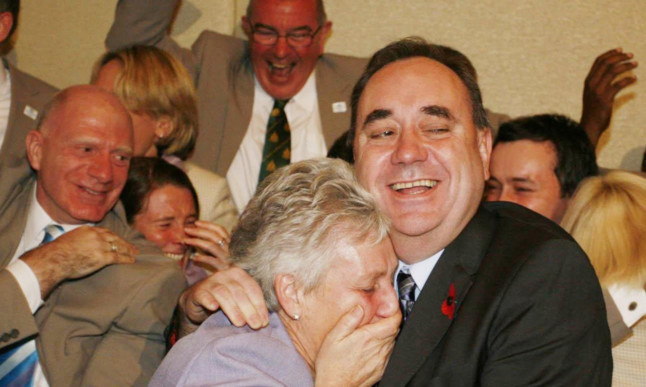It genuinely feels like a lifetime ago that Scotland won the bid to host the Commonwealth Games, but the moment is still fresh in my mind.
As a young adviser spending my waking hours in the Scottish Government’s St Andrew’s House offices, the special adviser team let out a massive roar of “yes” as we watched the result come through on TV live from Sri Lanka and our First Minister grab Commonwealth Games Scotland (CGS) Chair Louise Martin for a celebratory hug, both clearly in sheer joy at the news.
On his election in May ’07, Alex Salmond had his eye on the prize and embraced Scotland’s bid for the games as a matter of priority, building on the good work of his predecessor Jack McConnell. And thanks to the sheer dedication of the bid team, and stalwart Louise Martin, it all paid off.
So now, more than seven years later, the games have arrived, with a big opening ceremony which I’m sure many of you were watching last night as part of the global television audience of more than one billion people.
I hope these games bring lots of Scottish medals, a feel good factor for the host nation and, importantly, have a lasting impact that will outlive the 12 days of the games or even the next 12 months.
For Scotland, we have had a much better run-up to our games, delivered on time and on budget, a little celebrated fact. And we have a very strong team. Team Scotland won 33 medals the last time the Commonwealth Games were held in the country in Edinburgh in 1986 and coaches have set a target of at least 34 medals across the 17 sports at Glasgow 2014. What an achievement that would be.
The “L” word is always a political hot cake for host nations. It certainly was for London and its Olympics, and it most certainly has been for the last Commonwealth host Dehli who were beset with difficulties in the run-up to and during their games.
But what will our legacy be? What’s to become of this historic games once all the athletes leave and the medals have been handed out? Do the costs of the games bring long-term benefits?
For Dehli, that certainly remains to be proven.
The First Minister has said that the real legacy of these Commonwealth Games won’t just be the international profile, the physical infrastructure or jobs and investment but a “human legacy” the impact on the people.
In terms of sport, one of the main goals is that the games will bring about a rise in sports participation but that requires planning at grass roots level which other host cities have failed to do. Leigh Robinson, professor of sports management at Stirling University says: “After an event like this, you would expect to see a spike in the sports in which Scotland has won medals. So maybe everyone wants all of a sudden to play badminton, but the badminton clubs aren’t geared up for that or there aren’t enough facilities. Since the games were awarded, Glasgow has been building capacity at club level so that may not be such a big problem here.” Good news.
And while there is a substantial legacy programme in place, Professor Robinson doesn’t specifically think there will be lasting health benefits, as watching someone win a gold medal won’t necessarily change your attitude to physical activity in the long-term.
In an interesting and not unrelated contribution, a former chief medical officer said last weekend Scottish independence could be “very positive” for the country’s health.
Sir Harry Burns, speaking to the Crossfire programme on BBC Radio Scotland said that people’s health could be improved if they felt more in control of their lives. He also said he feared for the way the health service was going in England with its privatisation agenda, in one swift drop kick to the No campaign’s arguments that remaining part of the UK would “secure the best future” for the NHS in Scotland.
So, will being in control of our health service and government improve the nation’s health? I certainly think it will protect our NHS from the Westminster agenda of privatisation and increase a sense of responsibility and we know that a legacy of increased participation in sport means a healthier population.
Former Scotland football international and Hearts captain Michael Stewart has said that one huge benefit of Scottish independence for sport is opportunities on the world stage and more chances to compete.
So let’s look at the numbers, 54 Scottish athletes at London 2012 and a record 310 Scottish athletes in Glasgow 2014.
Just imagine what it would be like with Scotland competing on the world stage for every sport and for every event, not just sports like football or at the Commonwealth Games. The increased opportunities for our athletes to compete are enormous.
Perhaps a vote for independence will also be our major legacy for sport in Scotland, not just the games.
